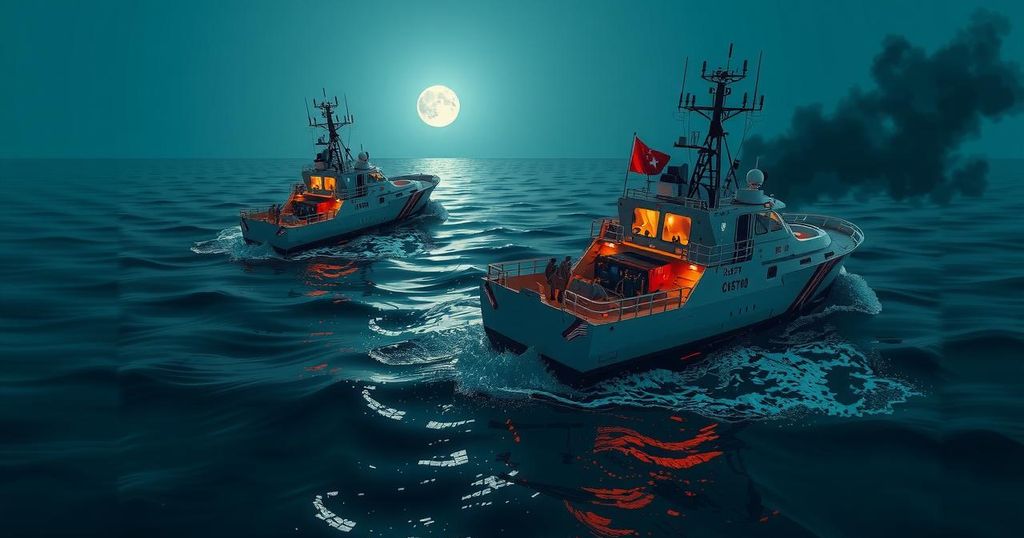Tense Situation Unfolds as Chinese and Filipino Coast Guard Ships Collide in South China Sea
The recent collision between Coast Guard vessels from China and the Philippines near the Sabina Shoal in the South China Sea has led to a contentious exchange of allegations between the two nations. This incident represents the most recent development in an ongoing standoff over disputed territories in the region.
China has made public footage of the collision, claiming that the Philippine vessel deliberately disregarded warnings and engaged in a dangerous collision with the Chinese ship. Conversely, the Philippines has rejected these assertions, asserting that their vessels, the BRP Bagacay and BRP Cape Engano, were subjected to aggressive maneuvers by the Chinese ships while en route to supply personnel on nearby islands.
This confrontation resulted in structural damage to both Philippine ships, with the Cape Engano sustaining a significant five-inch hole on its deck. The Philippine Coast Guard has described this clash as the most substantial structural damage they have experienced at the hands of the Chinese Coast Guard to date.
This incident is likely to impede recent efforts to reduce tensions between Manila and Beijing, particularly in light of China’s expansive territorial claims in the South China Sea. The Sabina Shoal, a maritime feature of the Spratlys archipelago, is also claimed by Brunei, Malaysia, Taiwan, and Vietnam. It is located 86 miles west of the Philippine island of Palawan, far from China’s Hainan, which is more than 808 miles away.
Following the collision, a spokesperson for the Chinese Coast Guard accused the Filipino vessels of illegally intruding into Chinese waters and violating temporary arrangements between the two countries. This clash comes after the announcement in July of a “provisional agreement” between China and the Philippines regarding resupply missions to Filipino sailors stationed on another contentious site, the Second Thomas Shoal.
It is noteworthy that Beijing’s claim of nearly the entire South China Sea, including the Sabina and Second Thomas Shoals, contradicts a 2016 ruling by the Permanent Court of Arbitration in The Hague, which declared that such claims have no basis under international law.
As tensions escalate in the aftermath of this maritime clash, it remains to be seen how this latest incident will impact the already complex and sensitive territorial disputes in the South China Sea. The international community will be closely monitoring the situation and its potential ramifications.








Post Comment